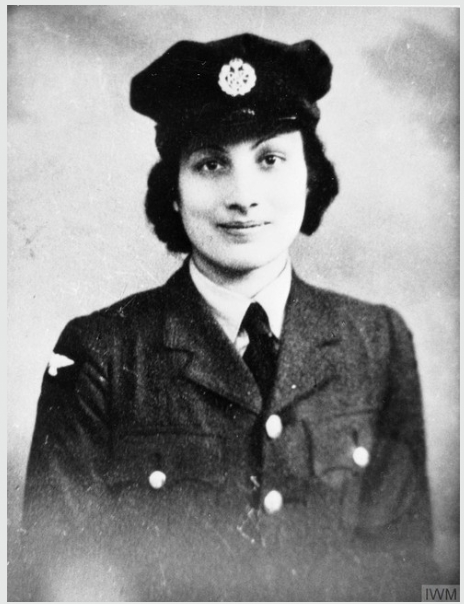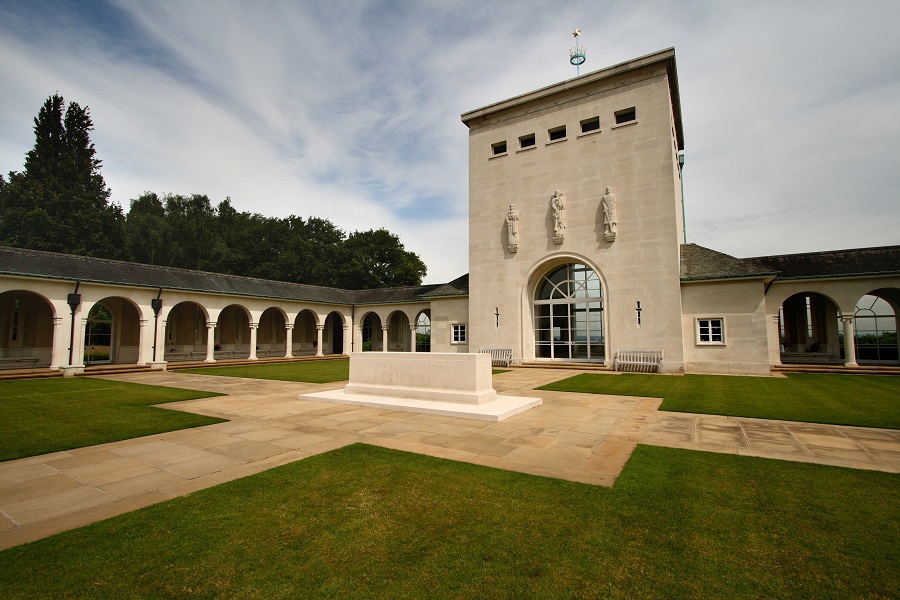03 July 2019
New grant to help tell the stories of the Commonwealth War Graves Commission Runnymede Air Forces Memorial

The Commonwealth War Graves Foundation (CWGF) is delighted to announce today that it has secured a £60,000 grant from Biffa Award in connection with the Association of Independent Museums. The grant, which is part of the History Makers programme, will enable the CWGF to develop a digital exhibition for the Commonwealth War Graves Commission’s Runnymede Air Forces Memorial.
The new exhibition will tell the story of Noor Inayat Khan, a Second World War secret agent and one of the most highly decorated women in British military history, who is commemorated on the memorial. In addition, the exhibition will help visitors to better understand the memorial and discover more about the other 20,000 Airmen and Women who were lost during operations from bases in the United Kingdom and North and Western Europe, who have no known grave.
The CWGF will work with young women and girls from the Girlguiding organisation to reinterpret the story of Noor, helping to make it relevant and engaging for a younger generation of visitors.
The History Makers scheme funds museums to create new exhibitions that will inspire the public through the lives and achievements of extraordinary, historical figures. The scheme is managed by the Association of Independent Museums (AIM) and Biffa Award, a multi-million-pound fund that helps to build communities and transform lives through awarding grants to communities and environmental projects across the UK as part of the Landfill Communities Fund.

Noor Inayat Khan was born in Russia in 1914. Her father was reputed to be a descendent of the last Mogul Emperor of southern India, and her mother was Anglo-American. She grew up in London and Paris. When the German army invaded France in May 1940, Noor escaped to Britain as a refugee. In 1940 Noor enlisted in the Women’s Auxiliary Air Force (WAAF) aged 26 years old. With experience in producing children’s radio, she trained as a wireless operator. In 1943 she was recruited into the Special Operations Executive (SOE) and on 16 June became the first female wireless operator sent into occupied France.

Almost every British radio had been discovered; only Noor’s remained, yet she continued to transmit to London. She was ordered to leave Paris but refused. After over three months, Noor was arrested by the Gestapo. After making two attempts to escape, she was eventually sent to Dachau concentration camp where she was killed.
Julian Evans, Director of International and Public Engagement said: “This grant will enable us to explore the story of the CWGC Runnymede Air Forces Memorial in a way that engages young people. We want to work with young women to share Noor’s Scientific and Technical achievements and inspire them though her bravery and sacrifice.”

